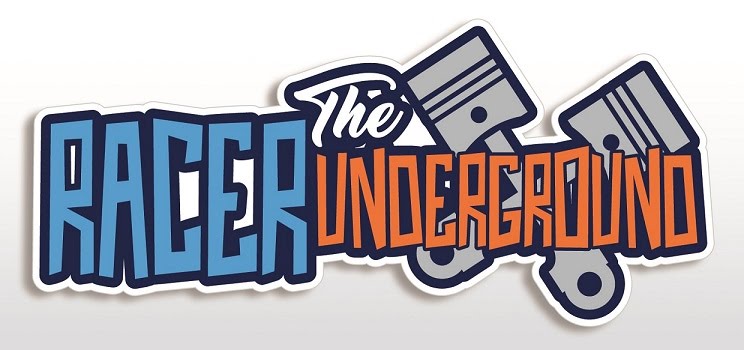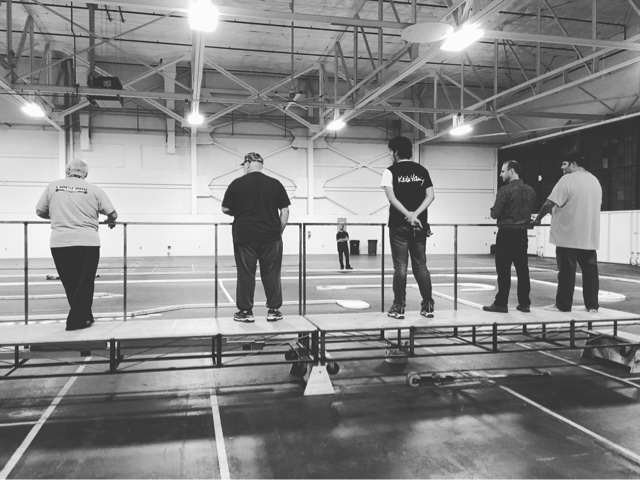Just last week, I was having yet another argumentative conversation with my wife regarding our bi-yearly family trip to Disneyland. Anyone that knows my wife, knows that she and her family have a serious addiction to the cartoon rat we refer to as Mickey Mouse. So much so, that every other year, the entire tribe heads down to Southern California for three full weeks of theme-park fun in the sun. It borders on the truly insane and is full-on expensive, but it's what she does. It's her entertainment and she loves it.
I've had a long-standing belief that my RC hobby is much easier on the bank account than her exorbitant trips to Disneyland. There's no way that my toy car racing could begin to match the ticket prices, air fare, hotel stay, and food cost of a Disney "extravaganza for one". When I was told the cost of the trip just for her, I went into a small frenzy. To say that I had "sticker shock" would be a gross understatement. To settle this once and for all, I totaled up entry fees and tire cost for a years-worth of racing and show her how much cheaper my own addiction is...... You see where this is heading....
Let's total it out:
- Race fee (1 class): $20.00 x2 races per month = $40.00
- Tires (part of race cost): 1 set per month = $25.00
- Food (post race bench racing): x2 races per month = $20.00
- Fuel (conservative amount) x2 races per month = $20.00
Holy. Shit.
For those readers that are also married, you know how truly painful it can be to lose an argument with your spouse. It's even more painful to lose an argument that I was so adamant about being right. After I realized I'd figuratively shot myself in the ass, I promptly ate a heaping pile of humble pie and apologized with a back massage later that night.
These figures are just the cost needed to race at our local track on two Wednesday night club races per month. Needless to say, I was blown away by the dollar amount I came up with. When we go racing, we don't see that massive number up front like when we save for a vacation or a trip, we nickel and dime our way to it over a year's worth of racing. It's truly an "out of sight out of mind" type of activity that is probably best left that way. It was quite a sobering revelation that my beloved hobby was taking more of my annual income than my wife's allegiance to the infamous smiling rodent.
I got to talking with a few racing buddies about the cost of this hobby, and it got me thinking: Why do I even do this? Where's the return on my investment? Why do I shell out dollars by the truck-load for a scale toy car, when I could be using those same dollars for something more family-oriented or important? It's a well-known fact that the RC hobby isn't a budget-friendly one. It's a pay-to-play proposition, whether its bashing or racing. Cars and equipment are constantly changing, costs to participate are rising within and outside the hobby, and for most of us, time is becoming scarce with longer work hours and traffic.
So, what's the point?
Today was the first point in a long time where I openly questioned the amount of money I was spending on this scale sport, and it was honestly a bit of a buzz kill. I can see how racers have a hard time justifying the cost of the sport. There's a point where the stress of shelling out countless greenbacks start to overrun the reason we all started racing in the first place. This is when "burnout" sets in, and for most, the fun of the hobby is ruined. At what point did this hobby become so god-awful expensive? Has it always been this way, and it was easy to mask it because of the small amounts at a time instead of a lump sum? I started searching for a reason for the dollar figure I suddenly discovered. I was looking for a tangible return on my investment that simply isn't there, but I was missing the point and didn't even realize it.
I thought about a conversation I had heard on the "Over The Bars" (OTB) podcast. On episode #24, podcast host Jeff Crutcher was talking to Kevin Moranz, a midwest motocross racer, about his upcoming race season and the cost of racing and progressing. The jest of the conversation was that if you stress for every penny looking for a return on investment, you'll miss out on the reason you ride or race in the first place and in turn, burn yourself out. It was a pretty fascinating conversation about perspective that I felt crosses over directly to RC racing. If you have a chance, check it out.
By no means does this mean that I should just ignore the numbers and go hog-wild on my racing program. If I spent based on "wants", I'd be broke by virtue of my spending habits and divorce proceedings. Just as was discussed during the podcast, if I continue to stress and fret about the money blown and attempting to justify every penny spent looking for that tangible ROI, I'll likely lose sight of why I enjoy racing so much, and quit altogether, like I had done many times before. I liken RC racing to the guy that buys a gas-guzzling modern muscle car over a Prius. While the muscle car is about as practical as common core math is to a human being, it's the "fun factor" that makes it desirable. "Smiles per gallon" is a common term for cars like this. The ROI is an intangible "seat of your pants" visceral experience. It truly is what you make of it.
RC is much the same way, and the more I thought about it, the more it made sense. Radio control car racing has never been and was never meant to be a sport with physical returns for our hard-earned time and money. It's true there are a very select few that earn a salary to race, or are paid to travel, but for the 99% of us mere mortals, it's a hobby that requires funds with no chance of a monetary return. We seldom see races with cash payouts, and even the biggest races have little to no return. Instead, those select elite racers rely on select companies to compensate their results with bonuses, while the rest of us privateers are left with a plastic plaque and a pat on the back. I'd be willing to bet that we will never see this change within the hobby, and that's okay. The moment I start to treat this hobby like a business with a bottom line, is the moment I'll lose all interest in my beloved scale pastime. From a dollars & cents standpoint, RC racing just doesn't quite "add up". But that's alright, there's more than just bills being created here, I swear....
Much like my wife's trips to Disneyland, the return on investment is something you could never see. To me, the ROI is the memories I created as a kid racing with my father. We don't get a chance to race together as much as we used to, but the return is there every time he shows up to turn laps. Another ROI is the friendships I've forged from this hobby. Some of the best people I know race with me regularly, and that keeps the hobby fresh and exciting. I've said this so many times in previous posts, but it really is the people within this whole deal that make the difference. It's these people that give us places to race, help us fix issues, and share a laugh in the pits. RC will never have that tangible return on investment that motocross does, or soccer, or most any other sport. But like most everything encompassing this kick-ass hobby, it's the intangible returns that make it worth the price of admission.
So, for those of you that are in relationships or married, next time you have the itch to go toy car racing, tell your significant other thanks. Tell them you appreciate them allowing you to enjoy this money-sucking addiction we all love so much. Don't make the same mistake I made in thinking this was some inexpensive form of entertainment. It racing, and all forms of racing cost money, no matter the scale. That doesn't mean that it isn't worth the cost, however. It's value is found in the adrenaline of competition, the people you meet, and the memories you create. If only my significant other would believe that sappy excuse for the charges on our bank account.....
Race on, kids!
-JRoy386
Race on, kids!
-JRoy386










